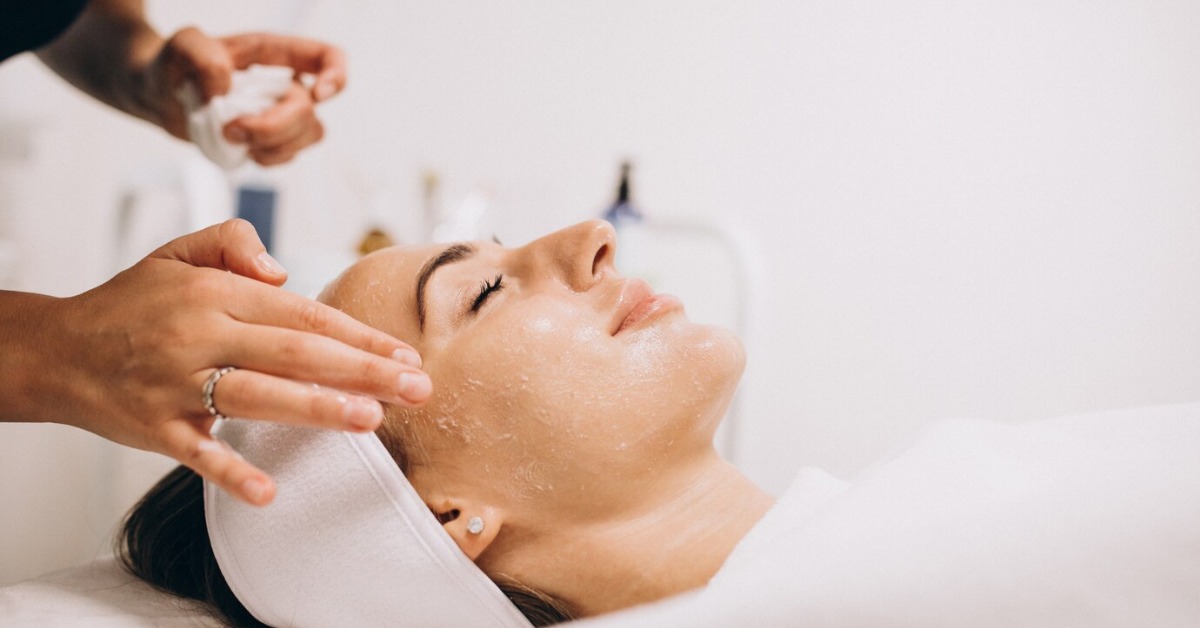Peeling skin is a common issue that many people face from time to time. This condition typically occurs when the outer layer of the skin sheds, revealing softer, newer skin beneath. Peeling skin is often accompanied by symptoms like redness, itching, and discomfort. If you’re struggling with peeling skin and are curious about its causes or treatments, this article will provide you with essential insights.
Peeling Skin: Symptoms
Peeling skin can manifest in various forms. Some common symptoms include:
- Dryness and Tightness: The skin may feel unusually dry and tight, giving it a rough and stretched appearance.
- Itching: Itching is a common issue during peeling skin, which can make the condition more uncomfortable.
- Redness and Swelling: In some cases, redness and swelling may appear on parts of the skin before it begins to peel.
- Cracks and Scratches: When peeling becomes severe, cracks or scratches may appear on the skin, leading to further discomfort.
- Complete Shedding of Skin Layers: In extreme cases, the entire top layer of the skin may shed, leading to more serious problems.
Peeling Skin: Causes
There are several reasons why skin may peel. Some of the most common causes include:
- Cold and Dry Weather: During cold months, the air lacks moisture, which causes the skin to lose hydration, leading to dryness and peeling.
- Excessive Sun Exposure: Spending prolonged periods in the sun can cause sunburn, leading to peeling skin due to the UV rays in sunlight.
- Skin Conditions: Certain skin conditions such as eczema, psoriasis, and dermatitis can cause the skin to peel.
- Infections: Bacterial or fungal infections can also cause the skin to peel as a result of the inflammation and irritation they cause.
- Allergies: Allergic reactions to certain creams, lotions, or products can trigger peeling as a side effect.
- Sensitive Skin: Some people have naturally sensitive skin, making it prone to damage from minor irritants, leading to peeling.
- Hormonal Changes: Hormonal fluctuations, such as those during pregnancy, menstruation, or menopause, can sometimes lead to skin peeling.
- Excessive Scrubbing or Rubbing: Repeated scrubbing or scratching of the skin can result in the removal of its outer layer, causing it to peel.
Peeling Skin: Diagnosis
Peeling skin is a common occurrence, but if it persists or becomes severe, it is important to consult a doctor for an accurate diagnosis. A medical professional can help identify the root cause of the problem and provide appropriate treatment. During the diagnosis, a doctor may consider the following factors:
- Medical History: The doctor will ask questions about your medical history, including whether you’ve used any new medications or experienced allergies or other skin issues recently.
- Physical Examination: The doctor will examine the affected areas of your skin to check for signs of infection, inflammation, or allergies.
- Tests and Lab Work: If necessary, the doctor may recommend tests such as skin biopsies, blood tests, or allergy tests to help determine the cause of the peeling.
- Skin Sensitivity Tests: In some cases, tests to evaluate the sensitivity of the skin may be conducted, especially if an allergic reaction or chemical irritation is suspected.
Peeling Skin: Treatment
The treatment for peeling skin depends on its underlying cause. Here are some common treatments that can help alleviate peeling skin:
- Use of Moisturizers: A good, rich moisturizer can help relieve dryness and prevent further peeling. It helps lock in moisture and keeps the skin hydrated.
- Sunscreen Application: Using a sunscreen with a high SPF (sun protection factor) when going out in the sun is essential to protect the skin from harmful UV rays and prevent further damage.
- Hydrating Face Masks: Hydrating face masks can provide relief for dry, itchy skin. Ingredients like honey, aloe vera, or rose water can be soothing and moisturizing.
- Consulting a Dermatologist: If peeling persists or if the skin condition seems severe, consulting a dermatologist is crucial. A skin specialist in your area can help address the problem and suggest appropriate treatment options.
- Antibiotics and Antifungal Creams: If an infection is causing the peeling, your doctor may recommend antibiotics or antifungal creams to treat the condition.
- Avoidance of Allergens and Irritants: If the peeling is due to an allergy or irritant, it’s important to avoid the substance causing the reaction. Your doctor may suggest antihistamines or other allergy medications.
- Healthy Diet: Eating a balanced diet with essential vitamins like Vitamin A, C, and E can help nourish the skin from within, promoting healthy skin growth and repair.
- General Medications and Topical Treatments: In some cases, medications such as corticosteroid creams or topical ointments may be recommended by the doctor to manage peeling skin and reduce inflammation.
Peeling skin can be a common and temporary issue, but if it becomes persistent or severe, it’s important to seek professional help. Skin health is often a reflection of overall health, and taking the right steps can help manage and resolve the condition. If you’re looking for expert treatment, seeking a dermatologist in your area can provide you with the necessary care. Always take care of your skin, stay hydrated, and use sun protection to keep your skin healthy and free from peeling issues.
FAQs
- What causes skin peeling?
Skin peeling usually occurs due to dryness, sun exposure, skin conditions (such as eczema, psoriasis), allergies, or infections. It can also be caused by weather changes, excessive itching, or friction. - What measures should I take to prevent skin peeling?
To prevent skin peeling, use a good moisturizer, apply sunscreen, and avoid using harsh chemical products on your skin. Additionally, maintaining a healthy diet and drinking enough water will help nourish your skin from within. - Can skin peeling be a serious problem?
If skin peeling is persistent and accompanied by swelling, pain, or infection, it could be a more serious issue. In such cases, it is important to consult a dermatologist for proper diagnosis and treatment. - Can allergies cause skin peeling?
Yes, allergies can cause skin peeling. If you are allergic to a specific product or substance, your skin may react, leading to peeling. - Where can I get treatment for skin peeling in Indore?
There are several dermatologists in Indore who can diagnose and treat skin peeling issues. You can consult a specialist to find the right solution for your skin problem.


